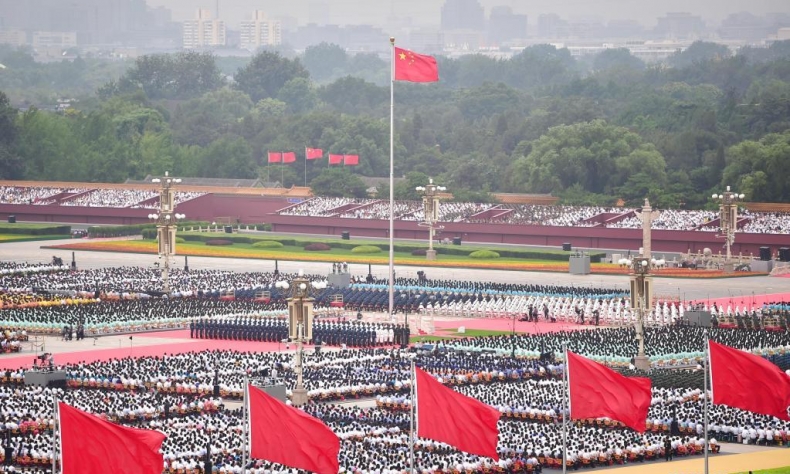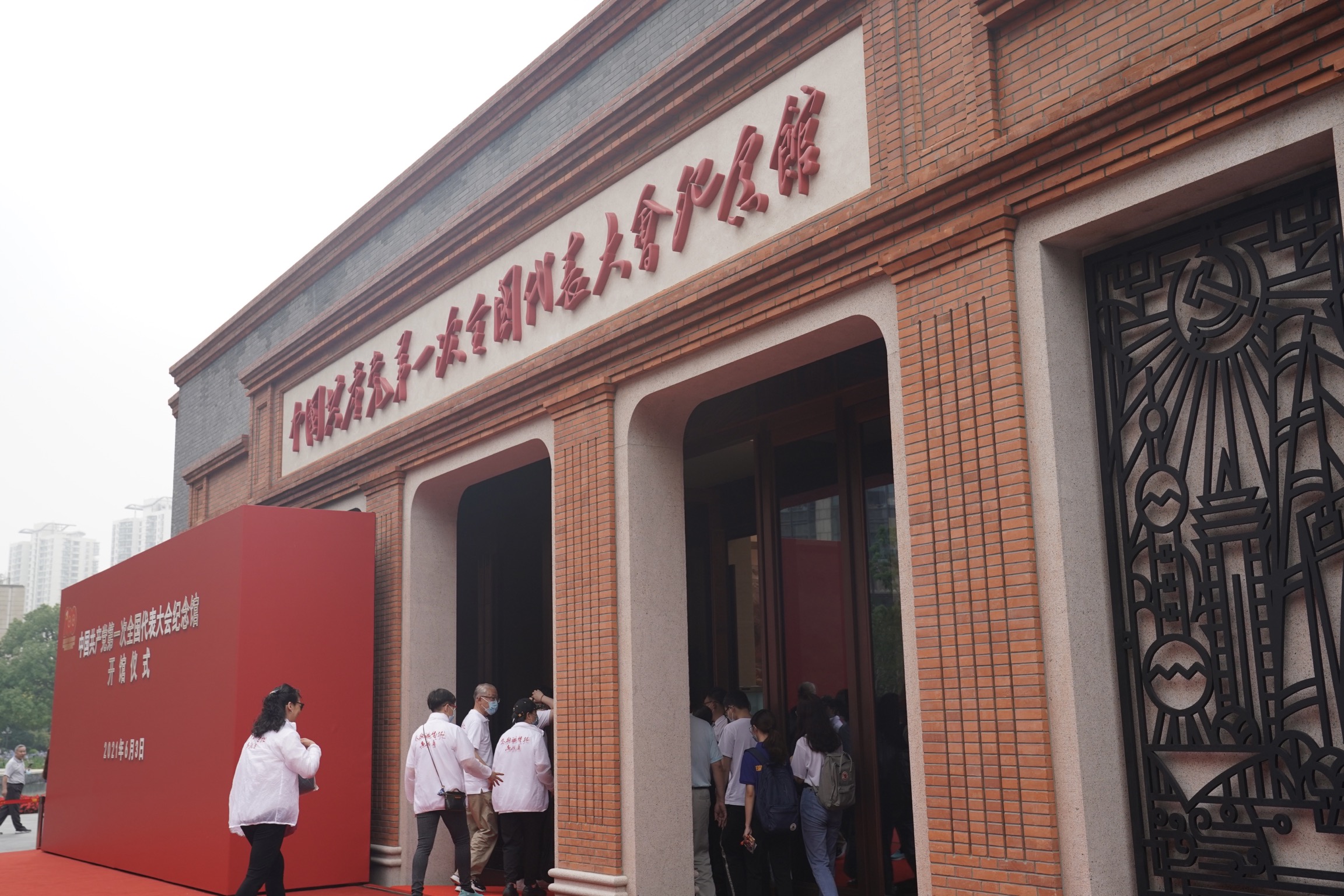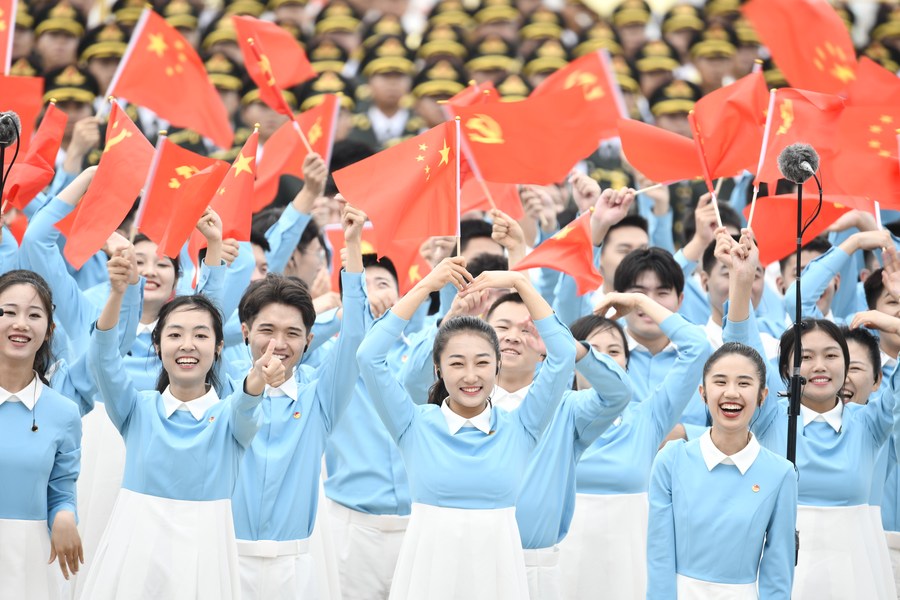China Still on the Revolutionary Journey

The founding of the People’s Republic of China only marks the completion of the first stage of the Chinese revolution. Now it is heading for a prosperous China, a socialist modern country at a higher stage, which is the ultimate goal of mankind stated by Karl Marx.
Editor’s note: Chinese President Xi Jinping, also general secretary of the Communist Party of China (CPC) Central Committee, and chairman of the Central Military Commission, on July 1 addressed a ceremony celebrating the CPC centenary at Tian’anmen Square in Beijing. Kimura Tomoyoshi, a former NHK anchor from Japan, studied President Xi’s speech and contributed an article to People’s China, pinning his hopes that more people can better understand China. His article was republished by China Focus in English.
“Today, the first of July, is a great and solemn day in the history of both the Communist Party of China and the Chinese nation,” general secretary of the Communist Party of China (CPC) Central Committee, Xi Jinping said at the beginning of his speech at the ceremony marking the 100th anniversary of the founding of the CPC in Beijing.
When mulling over Xi’s speech, I could feel the weight of history — the CPC has gone through 100 years with the Chinese people. Over the past century, confronted with tremendous difficulties, the Chinese people, including countless martyrs to the cause of revolution, under the leadership of the CPC, struggled to move forward and never stopped their efforts. The Chinese revolution opened a new chapter in modern history, bringing hope and possibility to the oppressed all over the world. It is of profound significance throughout the history of humanity across the world, which touched me incredibly.
Unfortunately, the media coverage about China in Japan is a world away from my feelings. They fabricated headlines like China aims to take Taiwan by force and won’t be bullied. They claimed that China was so assertive and pugnacious that it did not listen and made its own way willfully and dangerously. They even concluded that China risked more arbitrary decision-making. I was stunned by their narrative and doubted their professionalism.

Why the shallow and distorted understanding of China? After thinking it over, I believe it was because they know little about the Chinese revolution. How should we view today’s China? I think the success of the Chinese people’s revolution, led by the CPC, which gave birth to the PRC, does not mean the end of the revolution. The 100-year-old CPC is still a party on a mission, marching forward for lofty goals.
Needless to say, revolution means toppling the existing government, fundamentally changing the social institutions, and creating a new society where the people are the masters of the country. I am not in any position to judge revolutions, but I know well that we must get involved into practice before understanding and delivering social change. Only practical experience can make us understand revolutions. Do Japanese media recognize this? Do they have any idea about the significance of China’s constant efforts to make the nation move forward? How can they be compelling if the remarks come from thoughtless and irresponsible outsiders who have not even tried to know more about China and absorb insights from history?
When I was young, I read Edgar Snow’s Red Star Over China, where the description of the Chinese revolution moved me deeply. Since then, I started to view China and the world based on critical thinking. Snow, an American journalist, is obviously an outsider to China, but his book is soul-shattering. He faced the facts modestly, and even so, he was always asking himself whether he did justice to the facts in his reports. The fundamental reason for his thorough understanding of the people during the Chinese revolution can be boiled down to his intense self-examination. This is precisely what I think the Japanese media lack now, which is really disheartening.

What specifically is the long revolutionary journey that China embarked on?
Xi Jinping put forward the “nine-musts” in his speech, which articulated the full agenda for China and the path the country will take in the next 100 years. In other words, Xi made clear the tasks and challenges in the next period and called on everyone to summon up courage to fight headwinds.
In this ever-changing world, human beings must grapple with the unknown all the time. Mistakes are inevitable when “crossing the river by touching the stones,” but the key is whether we can confront such mistakes without losing hope for a final success. This also explains the importance of learning from history. Amidst all attempts, successful and unsuccessful, we must recognize and correct mistakes in time, instead of responding with inertia. Then over time, we will gain more experience in overcoming difficulties and forge ahead for a better future.
China has made remarkable achievements since day one, but this is far from the end. The founding of the People’s Republic of China only marks the completion of the first stage of the Chinese revolution. Now it is heading for a prosperous China, a socialist modern country at a higher stage, which is the ultimate goal of mankind stated by Karl Marx. The failure to realize that China is moving towards a historic goal of humanity will only lead to superficial judgment on the country.

It is noteworthy that we must jump out of the universal-value box created by the West when viewing China. We can hardly see what we should have seen: a real China. These media claimed that China is moving against the trend of the world and intends to make its own rules. Unfortunately, they did not realize that the “world” they said was merely the European and American world. As the world is undergoing once-in-a-century changes, we need to renew our thinking to acquire new knowledge. Otherwise, there is a good chance that we are unable to grasp the essence when looking at China and the world, on which Japanese media must be clear.
When addressing the ceremony at the square on July 1, where gather many young people, Xi urged all Chinese youths to keep moving forward. China’s economy had taken off when China’s youngsters were born. It is the young that will create a future. They will not take for granted the feat accomplished by their predecessors, but rather they will carry on the spirits of the Chinese revolution — persistent and courageous and always ready to rise to challenges. I noticed Xi’s expectations for the young generations. I also saw the hope of China.
The article reflects the author’s opinions, and not necessarily the views of China Focus.
Kimura Tomoyoshi is a former NHK anchor from Japan.
Translated by Liu Xiaomin
 Facebook
Facebook
 Twitter
Twitter
 Linkedin
Linkedin
 Google +
Google +










